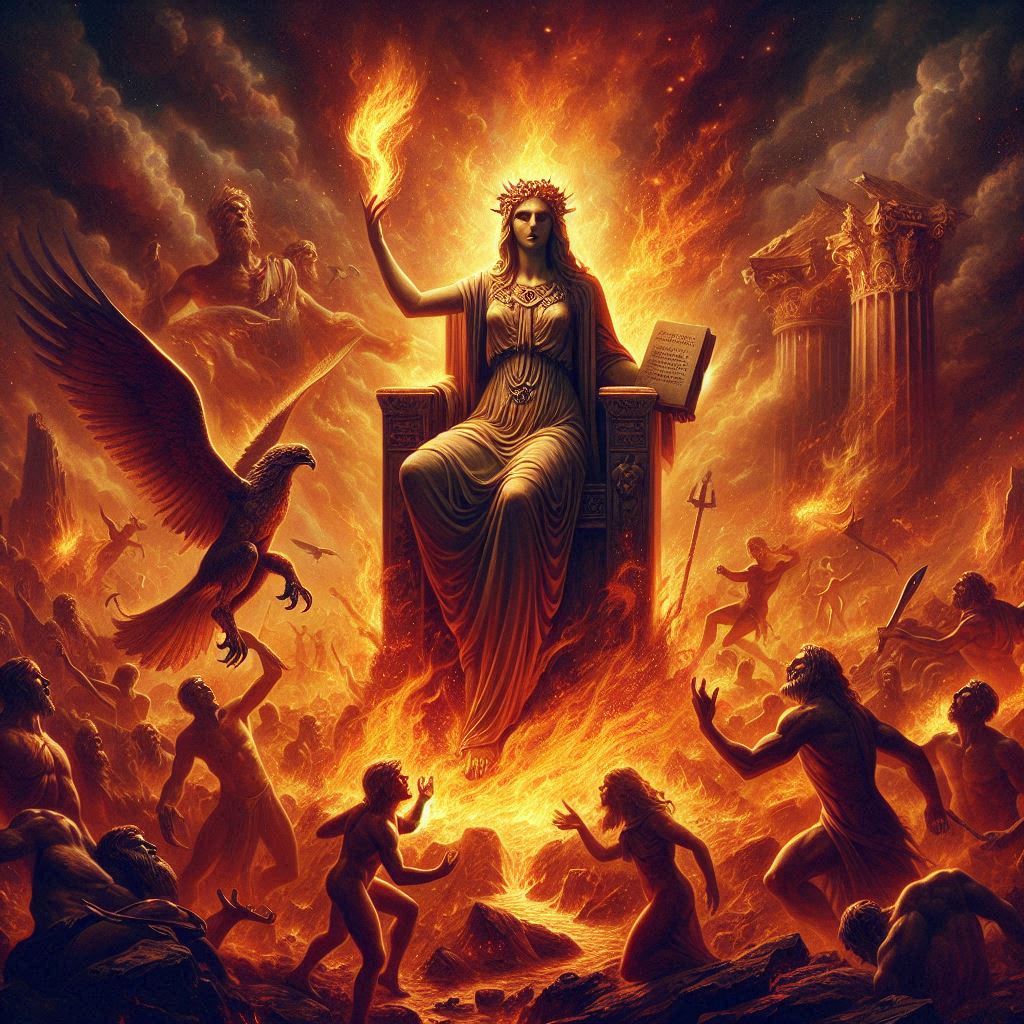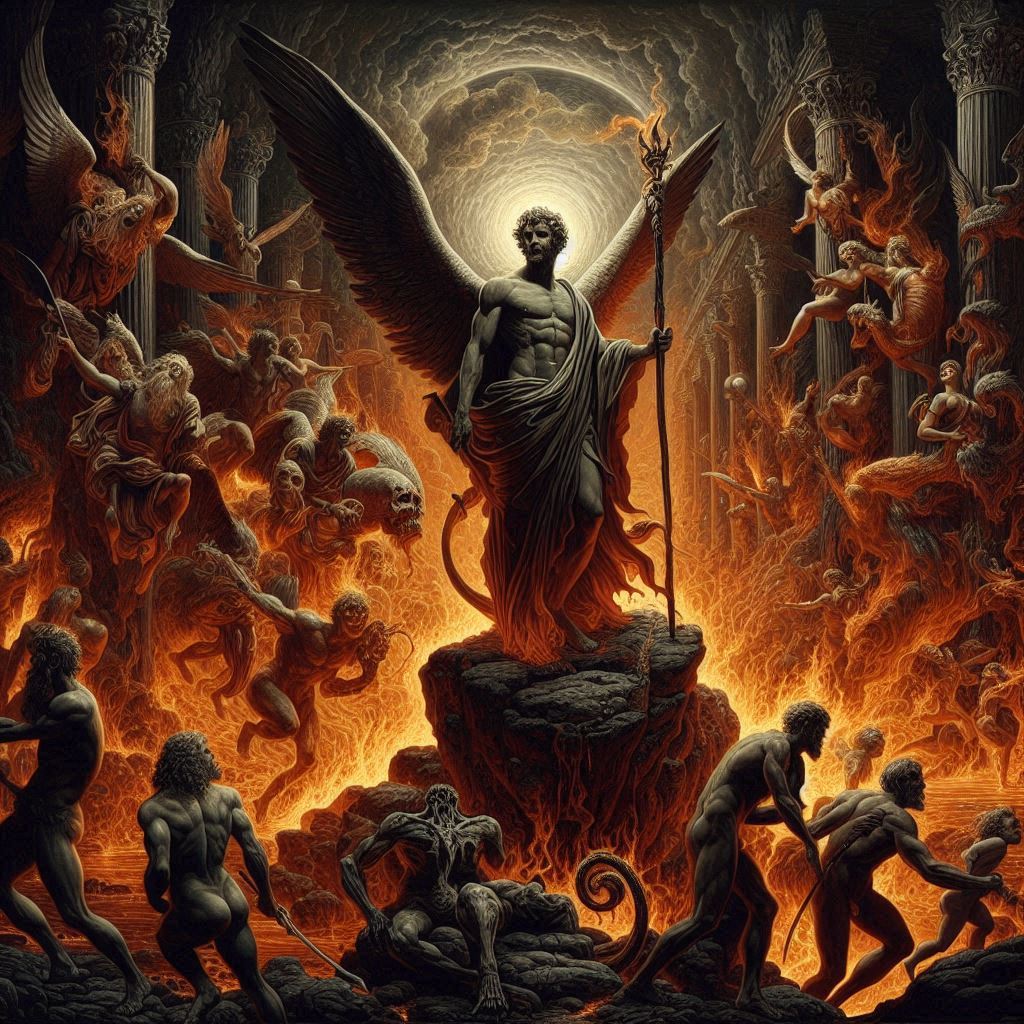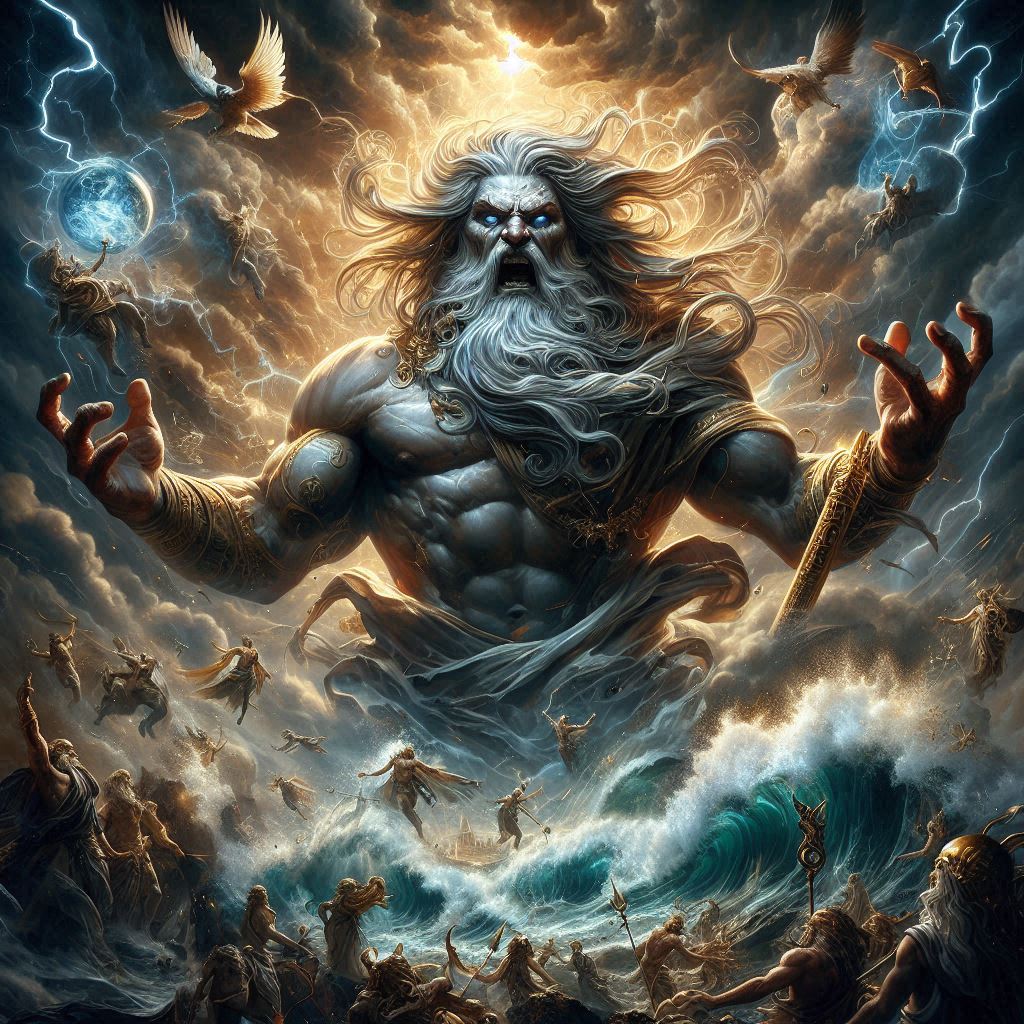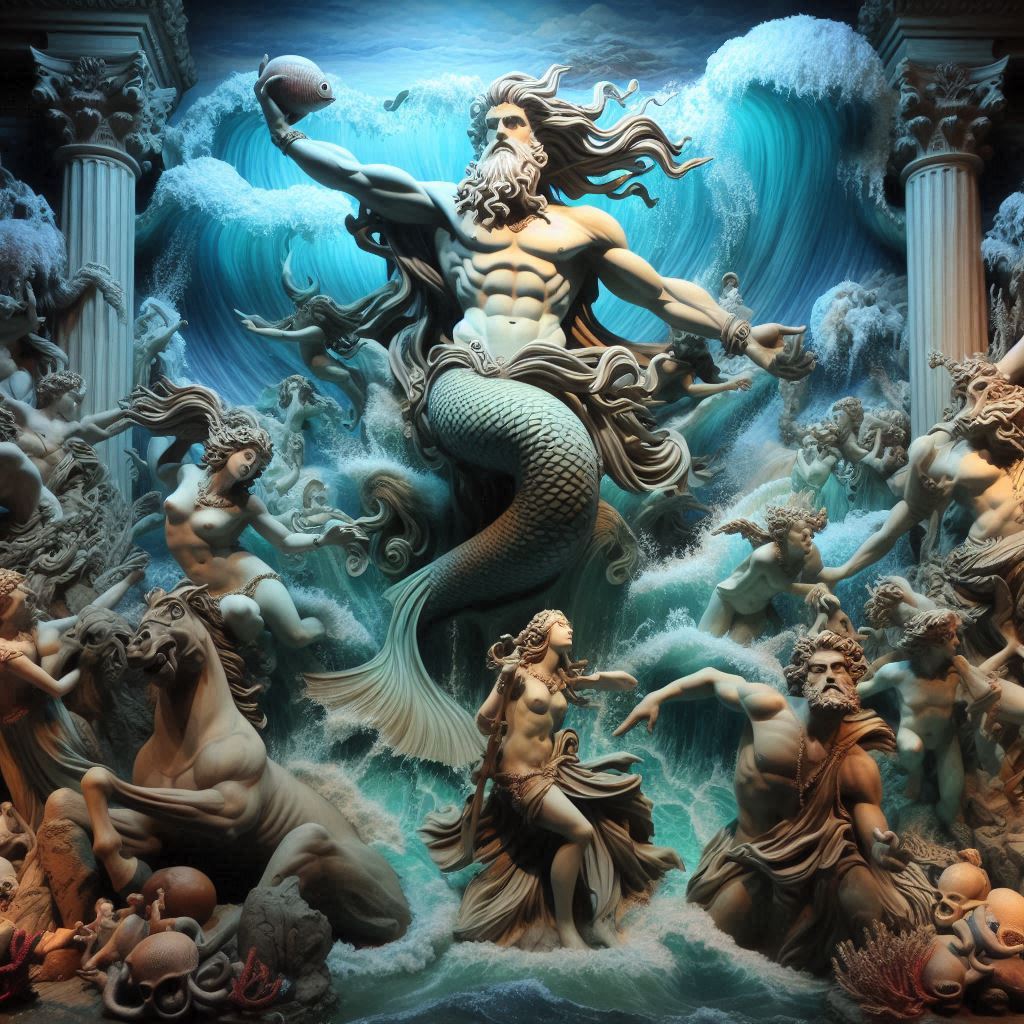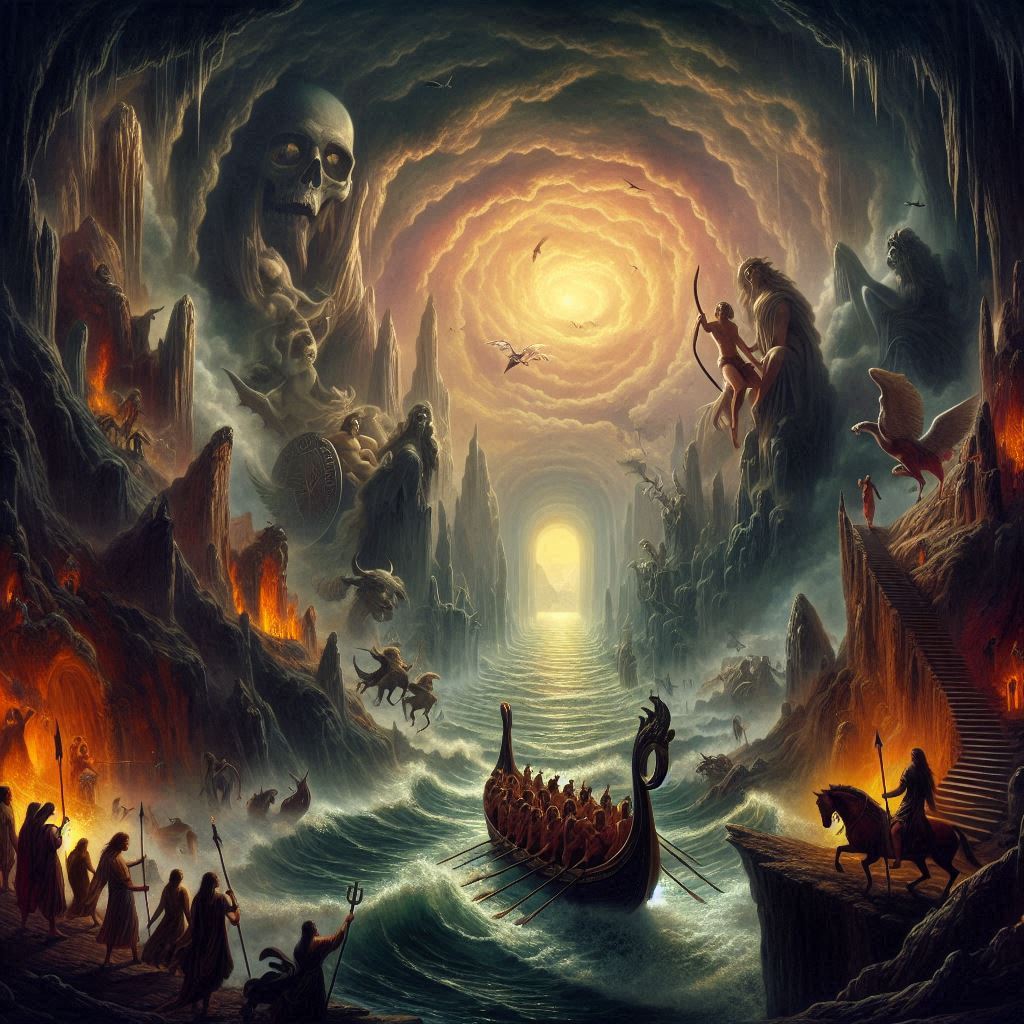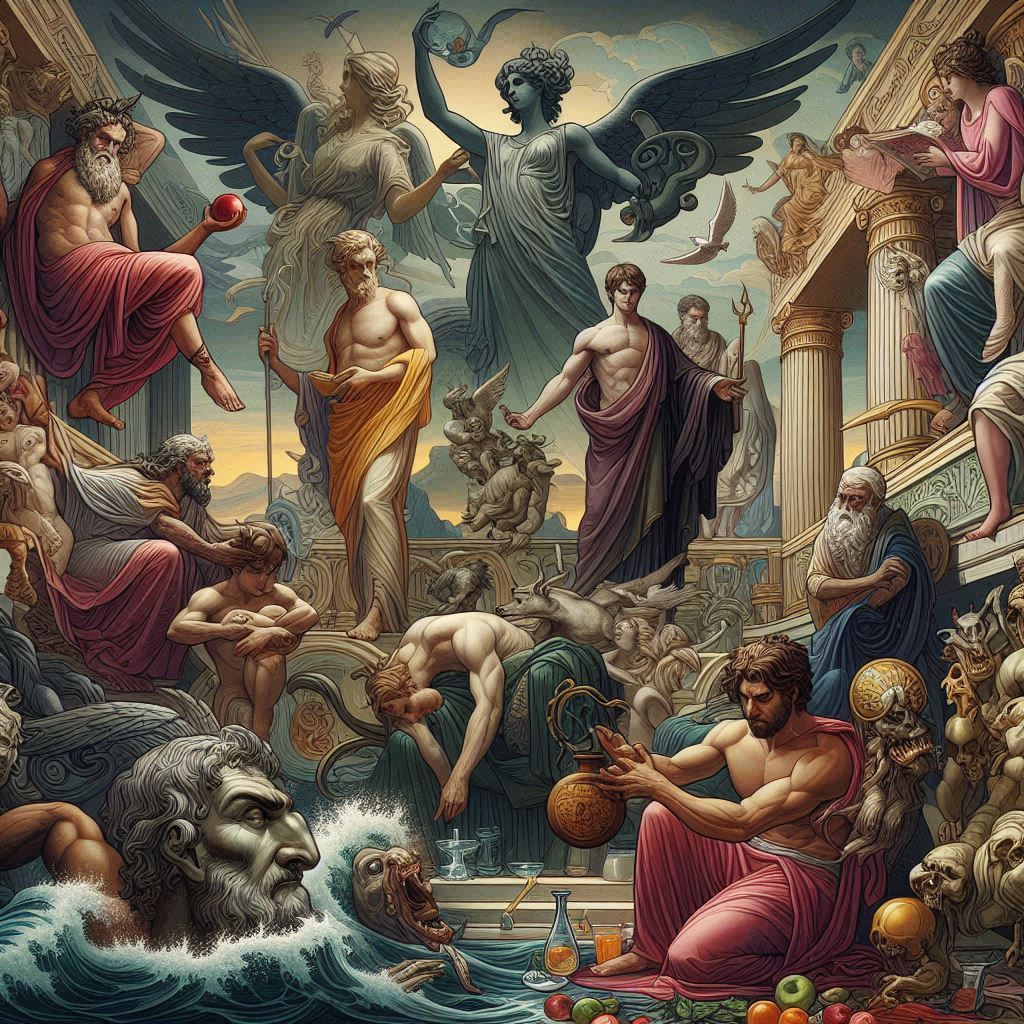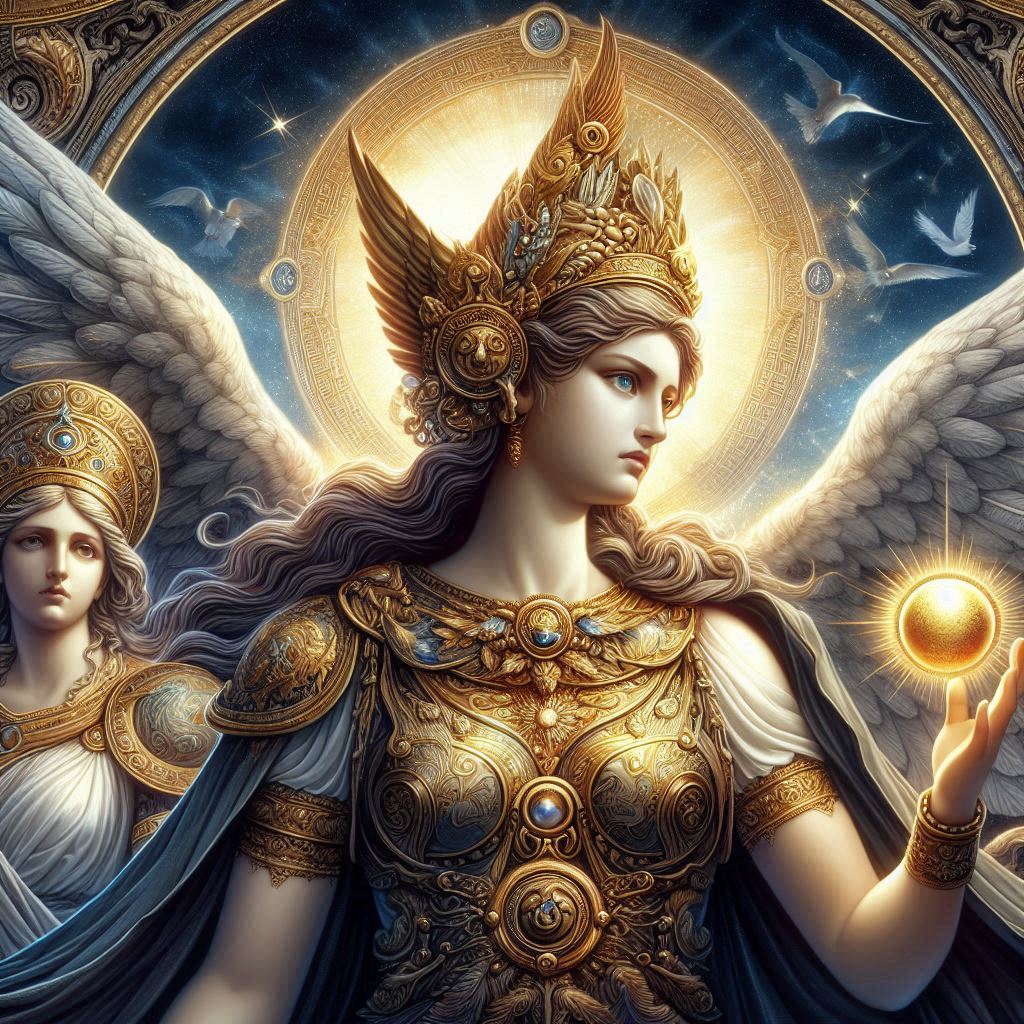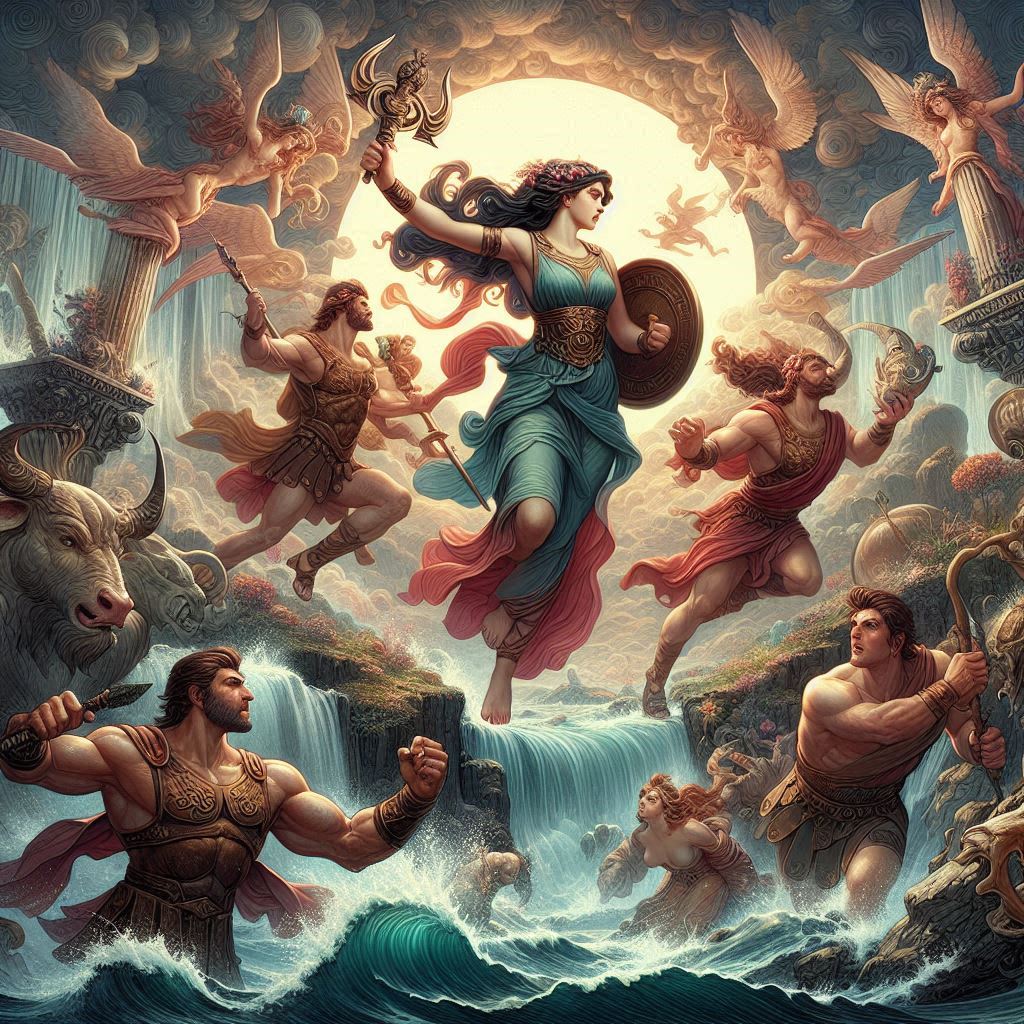The myth of Prometheus, a Titan in Greek mythology, is a tale that delves into themes of fire, rebellion, punishment, and the enduring struggle between gods and mortals. As a figure of intelligence, foresight, and innovation, Prometheus plays a pivotal role in shaping the destiny of humanity and challenging the authority of the Olympian gods. His actions, including the theft of fire and his gifts to humanity, lead to both blessings and curses, ultimately defining his fate and the consequences of defying divine order.
Prometheus’s story begins with the Titanomachy, the epic battle between the Titans and the Olympian gods for control of the cosmos. Zeus, the king of the gods, emerges victorious and establishes the reign of the Olympian pantheon, while the Titans are relegated to the depths of Tartarus. Prometheus, a son of the Titan Iapetus, chooses to align himself with Zeus and the Olympian gods, despite his Titan heritage.
Prometheus’s pivotal role in Greek mythology stems from his actions involving fire, a symbol of knowledge, civilization, and divine power. In one version of the myth, Prometheus defies Zeus by stealing fire from Mount Olympus and giving it to humanity, empowering mortals with the ability to harness heat, light, and technological advancements. This act of rebellion and benevolence towards humanity sets the stage for Prometheus’s enduring legacy and his conflict with Zeus.
Zeus, angered by Prometheus’s defiance and his gift of fire to mortals, devises a punishment that befits the Titan’s audacity. In one version of the myth, Zeus orders Hephaestus, the god of craftsmanship, to create a woman named Pandora and endow her with various gifts and qualities, including curiosity, charm, and deception. Zeus presents Pandora as a gift to Prometheus’s brother, Epimetheus, warning him of her potential to bring misfortune and sorrow to humanity.
The myth of Pandora’s box, a jar containing all the evils and sorrows of the world, is intertwined with Prometheus’s punishment and the consequences of his actions. When Pandora succumbs to curiosity and opens the jar, she releases chaos, diseases, plagues, and other afflictions upon the world, bringing suffering and hardship to mortals. This mythological motif underscores the theme of curiosity leading to unintended consequences and the notion of divine retribution for mortal transgressions.
However, Prometheus’s punishment extends beyond the creation of Pandora and the introduction of suffering into the world. In some versions of the myth, Zeus chains Prometheus to a rock in the Caucasus Mountains, where an eagle or vulture perpetually devours his regenerating liver each day as punishment for his defiance. This torment serves as a symbolic representation of Prometheus’s enduring agony and the cyclical nature of his punishment, as his liver regenerates each night only to be consumed again the next day.
Prometheus’s suffering and resilience become emblematic of the human spirit’s capacity for endurance, sacrifice, and defiance in the face of adversity. His willingness to challenge divine authority and empower humanity with knowledge and fire embodies the ideals of enlightenment, progress, and the pursuit of knowledge. Despite his punishment and suffering, Prometheus remains steadfast in his principles and commitment to humanity, becoming a symbol of rebellion, resilience, and intellectual curiosity.
The myth of Prometheus also intersects with other narratives in Greek mythology, including the story of Heracles (Hercules) and his quest to free Prometheus from his torment. As part of his Twelve Labors, Heracles encounters Prometheus chained to the rock and frees him from his eternal punishment, earning the gratitude and admiration of the Titan. This mythological episode highlights themes of heroism, redemption, and the interconnectedness of mortal and divine destinies.
Prometheus’s legacy extends beyond his mythological role as a rebel and benefactor of humanity; he also embodies archetypal qualities of ingenuity, foresight, and sacrifice. His association with fire, knowledge, and technological advancements underscores the transformative power of human innovation and progress. Prometheus’s enduring presence in art, literature, and popular culture reflects his status as an iconic figure whose story continues to resonate with themes of freedom, defiance, and the quest for enlightenment.
In art and literature, Prometheus is often depicted as a solitary figure bound to the rock, enduring his punishment with stoic resolve and defiance. His enduring suffering and sacrifice symbolize the human capacity for endurance, resilience, and the pursuit of higher ideals. Prometheus’s story serves as a cautionary tale about the consequences of challenging divine authority and the enduring struggle between gods and mortals for knowledge, freedom, and autonomy.
The myth of Prometheus invites contemplation on the ethical dimensions of progress, innovation, and the responsibilities that come with knowledge and power. His defiance of Zeus and the Olympian gods underscores the tension between individual agency and divine will, as well as the consequences of crossing boundaries and challenging established norms. Prometheus’s fate embodies the complexities of the human condition and the eternal quest for enlightenment, wisdom, and the pursuit of truth.
